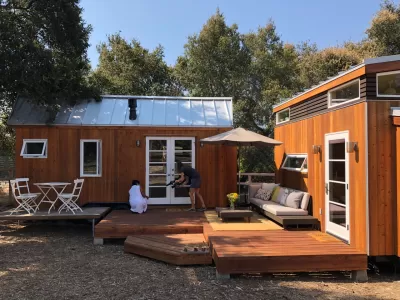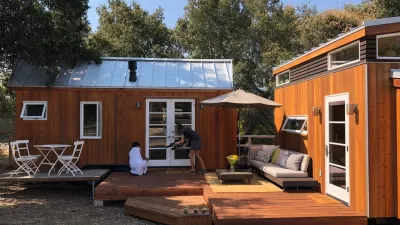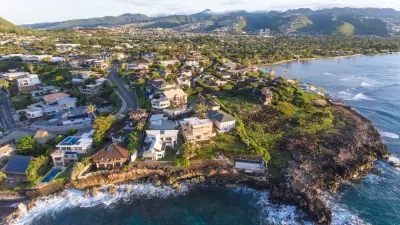Against opposition, the town of Durango, Colorado has successfully found a way to permit accessory dwelling units and legalize those that already existed under the radar.

Accessory dwelling units (ADUs) can be "an instant source of affordable housing, if only they could be freed from extensive restrictions that cities and towns have in place that tightly limit who can live there," Anthony Flint writes.
In Colorado, the city of Durango overhauled its land use code from 2009 through 2013, making ADUs an acceptable form of housing. "The big problem, however, was what to do with existing ADUs," Flint says.
To tackle that, Durango launched a program of "ADU amnesty" requiring owners with (technically illegal) ADUs on their property to come forward, pay fees, and get registered. "Getting the transactional details on the record was basically a process of regularizing what was a robust informal economy."
Meanwhile, persistent local opposition emerged to the legalization of ADUs. Durango's planners "held firm," devising public education campaigns to placate resident concerns. "There may be no secret sauce for getting this done, but demonstrating the benefits—to owners, and to the community at large—is surely a centerpiece."
FULL STORY: How One Colorado City Instantly Created Affordable Housing

Study: Maui’s Plan to Convert Vacation Rentals to Long-Term Housing Could Cause Nearly $1 Billion Economic Loss
The plan would reduce visitor accommodation by 25,% resulting in 1,900 jobs lost.

North Texas Transit Leaders Tout Benefits of TOD for Growing Region
At a summit focused on transit-oriented development, policymakers discussed how North Texas’ expanded light rail system can serve as a tool for economic growth.

Using Old Oil and Gas Wells for Green Energy Storage
Penn State researchers have found that repurposing abandoned oil and gas wells for geothermal-assisted compressed-air energy storage can boost efficiency, reduce environmental risks, and support clean energy and job transitions.

Private Donations Propel Early Restoration of Palisades Playground
Los Angeles has secured over $1.3 million in private funding to restore the Pacific Palisades playground months ahead of schedule, creating a modern, accessible space that supports community healing after recent wildfires.

From Blight to Benefit: Early Results From California’s Equitable Cleanup Program
The Equitable Community Revitalization Grant (ECRG) program is reshaping brownfield redevelopment by prioritizing projects in low-income and environmental justice communities, emphasizing equity, transparency, and community benefits.

Planting Relief: Tackling Las Vegas Heat One Tree at a Time
Nevada Plants, a Las Vegas-based nonprofit, is combating the city’s extreme urban heat by giving away trees to residents in underserved neighborhoods, promoting shade, sustainability, and community health.
Urban Design for Planners 1: Software Tools
This six-course series explores essential urban design concepts using open source software and equips planners with the tools they need to participate fully in the urban design process.
Planning for Universal Design
Learn the tools for implementing Universal Design in planning regulations.
Ascent Environmental
Borough of Carlisle
Institute for Housing and Urban Development Studies (IHS)
City of Grandview
Harvard GSD Executive Education
Toledo-Lucas County Plan Commissions
Salt Lake City
NYU Wagner Graduate School of Public Service





























